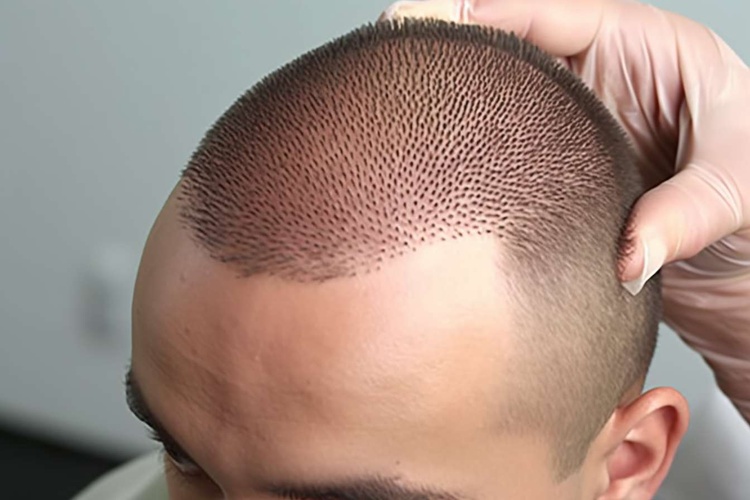The right way to treat thinning hair on the crown in women
Hair thinning at the crown is a common concern for many women, often causing distress and affecting self-confidence. While male pattern baldness receives significant attention, female hair thinning follows different patterns and requires specific approaches. Understanding the causes—from hormonal changes to nutritional deficiencies—is essential for finding effective solutions that address this particular form of hair loss.

Thinning hair at the crown can be particularly distressing for women, as it affects visibility and styling options while potentially impacting self-confidence. Unlike men’s hair loss patterns, women typically experience diffuse thinning across the crown area rather than receding hairlines. The good news is that with proper understanding and treatment approaches, many women can successfully manage and improve this condition.
What causes thinning hair on the crown in women?
Several factors contribute to crown thinning in women. Hormonal fluctuations, particularly during menopause when estrogen levels decline, often trigger this pattern of hair loss. Other common causes include genetic predisposition (female pattern hair loss), stress, nutritional deficiencies, certain medications, and underlying medical conditions like thyroid disorders or polycystic ovary syndrome (PCOS).
Aging also plays a significant role, as hair follicles naturally become smaller over time, producing finer hairs that provide less coverage. Excessive styling, heat treatments, and chemical processes can further damage hair and exacerbate thinning at the crown. Understanding your specific trigger factors is crucial for selecting the most effective treatment approach.
Effective vitamins against hair loss for women
Vitamin deficiencies can significantly impact hair health and contribute to thinning. Biotin (vitamin B7) is perhaps the most well-known nutrient for hair growth, supporting keratin infrastructure—the protein that makes up hair strands. Vitamin D deficiency has been linked to hair loss conditions, while iron is essential for carrying oxygen to hair follicles.
Other important nutrients include vitamin E (which improves scalp circulation), vitamin C (which helps with collagen production and iron absorption), and zinc (which supports hair tissue growth and repair). Omega-3 fatty acids reduce inflammation around hair follicles and promote healthier hair growth cycles. Many women find that supplements combining these nutrients can help address thinning hair, though results typically take several months to become noticeable.
Best vitamins against hair loss in the UK
The UK market offers numerous vitamin supplements formulated specifically for hair health. Popular options include Viviscal, which contains marine protein complex, biotin, and zinc; Hairburst, which combines biotin, selenium, and zinc with collagen; and Perfectil Hair, which provides a comprehensive blend of 28 micronutrients targeting hair health.
Philip Kingsley Tricho Complex is another well-regarded option that includes iron, biotin, and vitamin D, developed by trichologists specializing in hair and scalp health. For those preferring food-based supplements, Solgar’s Skin, Nails and Hair Formula uses natural ingredients with high bioavailability. When selecting supplements, look for those with clinical evidence supporting their efficacy and appropriate dosages of key nutrients.
Home remedies against hair loss in women
Many accessible home treatments can help address thinning hair. Scalp massage is particularly beneficial, as it stimulates blood circulation to hair follicles, potentially encouraging growth. Using essential oils like rosemary, peppermint, or lavender (diluted in carrier oils) during massage may enhance these benefits, as some studies suggest these oils can stimulate follicle activity.
Aloe vera applied directly to the scalp can reduce inflammation and dandruff while creating healthier conditions for hair growth. Onion juice, though pungent, contains sulfur compounds that may improve circulation and reduce inflammation. Rice water rinses have gained popularity for their amino acid and vitamin content that strengthens hair strands. While these remedies generally have fewer side effects than medications, consistency is key—most require regular application over months to show results.
A simple way to treat thinning hair on the crown in women
For many women, the most effective approach combines lifestyle modifications with targeted treatments. Starting with a proper hair care routine is essential—using volumizing, sulfate-free shampoos and lightweight conditioners that don’t weigh hair down. Minimizing heat styling, tight hairstyles, and chemical treatments helps prevent further damage.
Topical minoxidil (available over-the-counter at 2% strength for women) has significant clinical evidence supporting its effectiveness for crown thinning. Applied directly to the scalp twice daily, it increases blood flow to follicles and extends the growth phase of hair. While it requires consistent use to maintain results, many women see noticeable improvement within 3-6 months.
Medical treatments and professional solutions
When home remedies and over-the-counter treatments prove insufficient, medical interventions offer more powerful solutions. Dermatologists and trichologists can prescribe treatments like spironolactone (which blocks androgens that contribute to hair thinning) or low-dose oral minoxidil for suitable candidates.
| Treatment | Provider Type | Estimated Cost Range | Key Benefits |
|---|---|---|---|
| PRP Therapy | Dermatology clinics | £250-£500 per session | Uses platelets from own blood to stimulate growth |
| Low-Level Laser Therapy | Specialized clinics/at-home devices | £200-£800 for devices | Non-invasive stimulation of follicles |
| Hair Transplantation | Specialized surgeons | £3,000-£7,000+ | Permanent solution for severe thinning |
| Prescription Medications | Dermatologists | £20-£80 monthly | Targets hormonal causes of hair loss |
Prices, rates, or cost estimates mentioned in this article are based on the latest available information but may change over time. Independent research is advised before making financial decisions.
Hair transplantation techniques have advanced significantly, with Follicular Unit Extraction (FUE) offering minimal scarring and natural-looking results for women with significant crown thinning. However, this should be considered only after exploring less invasive options.
Remedies against thinning hair on the crown in women
Dietary approaches can complement other treatments. Ensuring adequate protein intake is crucial, as hair is primarily composed of protein. Foods rich in iron (leafy greens, lean meats), omega-3 fatty acids (fatty fish, flaxseeds), and antioxidants (berries, nuts) support overall hair health. Some women find that reducing inflammatory foods improves their hair growth patterns.
Stress management techniques like yoga, meditation, or regular exercise can help address stress-related hair loss. Adequate sleep is also vital, as growth hormone is released primarily during deep sleep phases. For some women, addressing underlying hormonal imbalances through lifestyle changes or medical intervention proves necessary for meaningful improvement in crown thinning.
Treating thinning hair at the crown requires patience and typically a multi-faceted approach. While no single solution works for everyone, understanding the specific causes and exploring various treatment options can lead to significant improvements for most women. Consulting with healthcare providers ensures any underlying medical conditions are addressed while tailoring treatment to individual needs.
This article is for informational purposes only and should not be considered medical advice. Please consult a qualified healthcare professional for personalized guidance and treatment.




